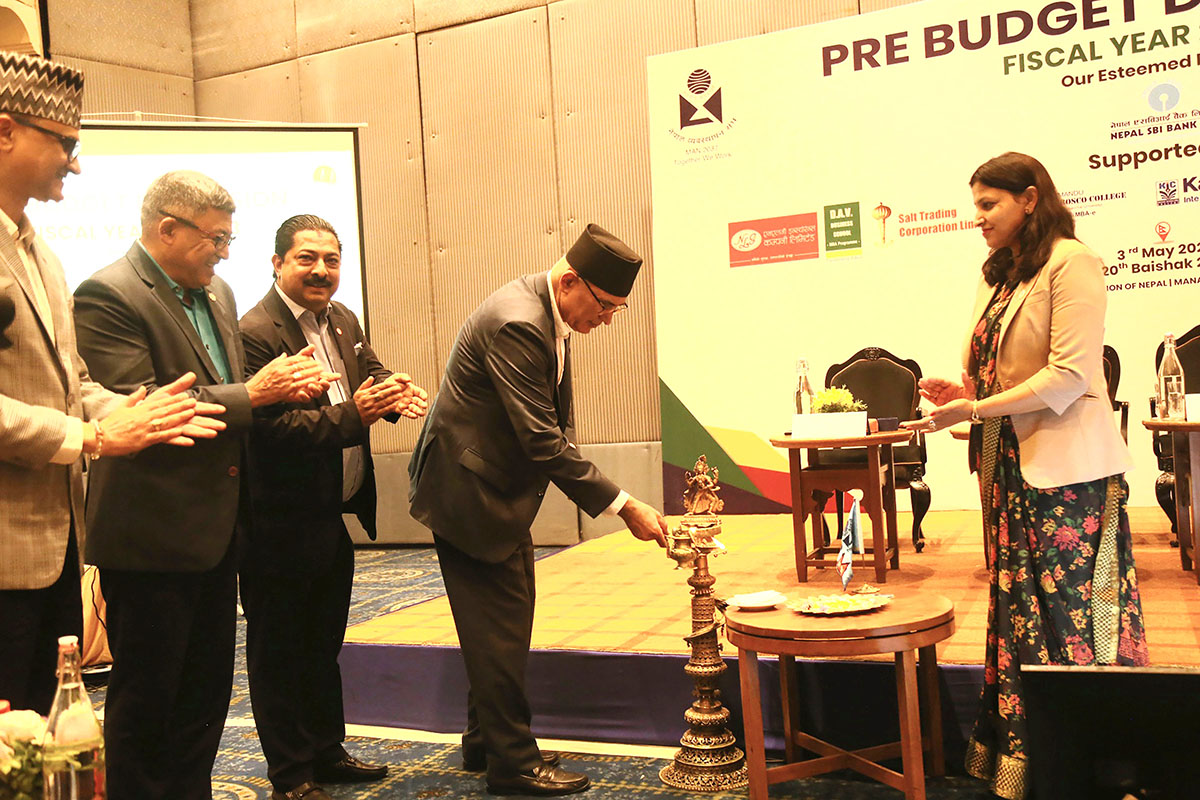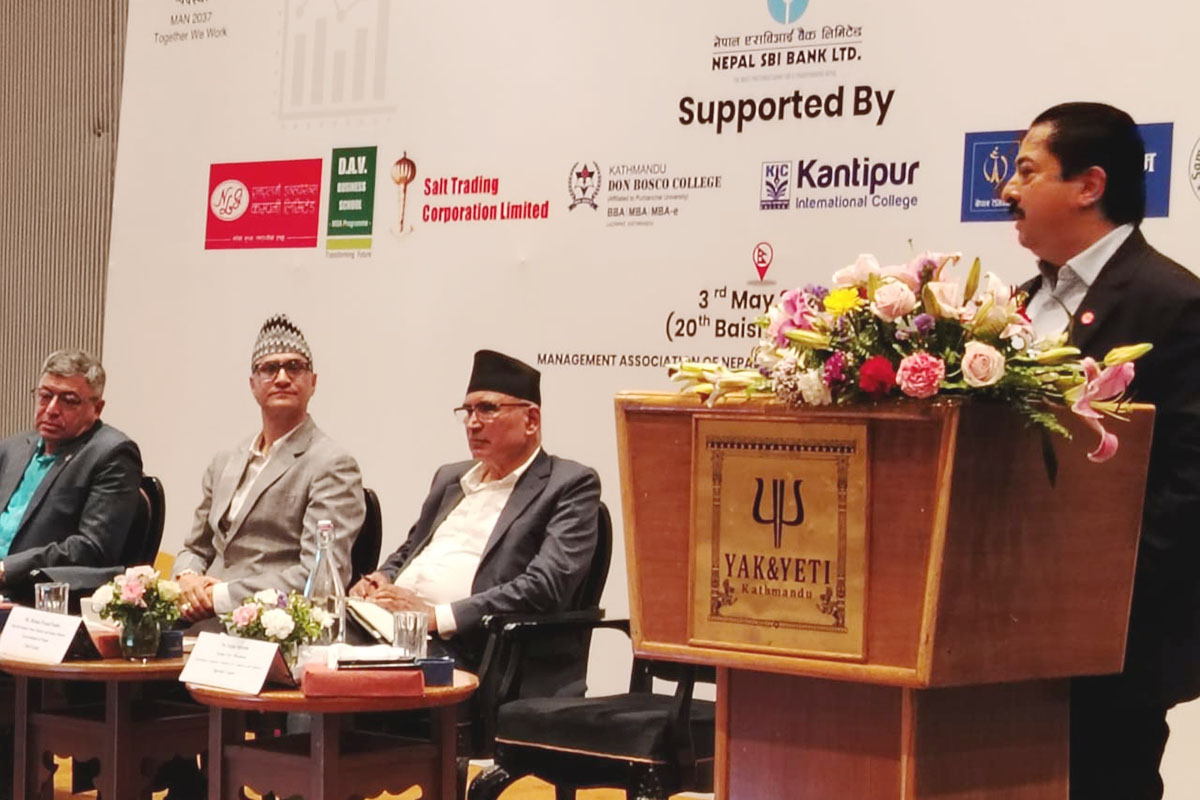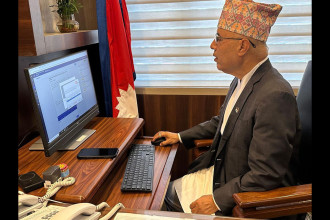
KATHMANDU: Deputy Prime Minister and Minister for Finance Bishnu Prasad Paudel has stated that continuous efforts are being made to reform the country’s economy.
Addressing a pre-budget discussion programme organised by the Management Association of Nepal (MAN) in Kathmandu on Saturday, Finance Minister Paudel said that various laws had been amended in the first phase to promote investment and good governance.
In the second phase, economic reforms have begun through legal amendments and will continue, according to Paudel. He asserted that several laws were modified via ordinance to facilitate investment and improve governance as part of economic reforms.
Paudel affirmed that the government was prioritising private sector but acknowledged that investors were facing difficulties due to policy instability.
The Deputy Prime Minister said the Alternative Development Finance Mobilisation Bill had been registered in parliament to support economic development and investment promotion, adding that the Bill will be passed soon.
He also mentioned that the cooperative sector is a key pillar of the country's economy; however, issues have emerged due to some actors violating cooperative principles.

At the programme, Federation of Nepalese Chambers of Commerce and Industry (FNCCI) Senior Vice President Anjan Shrestha urged the government to prioritise small and medium enterprises (SMEs) in the upcoming budget.
"SMEs contribute significantly to Nepal’s economy, yet they lack proper encouragement, affecting production, productivity and employment. Easy access to loans and rescheduling of existing debts is necessary, and we expect the budget to address these issues," said Shrestha.
He also emphasised the need for policy stability, stating that a strong government should ensure investor confidence.
Shrestha pointed out that infrastructure development has been slow and urged the government to ensure the effective operation of Bhairahawa and Pokhara international airports for better connectivity.
He also called for measures to control Nepal’s informal economy, which makes up more than 40% of total economic activity.
Further, he suggested transitioning from a "Decade of Employment" to a "Decade of Industrialisation", stressing that industrial growth and job creation are crucial to preventing youth migration from Nepal.
Nepal Chamber of Commerce (NCC) Senior Vice President Deepak Kumar Malhotra and other speakers also shared their views on budget for upcoming fiscal year 2025/26, emphasising the need to facilitate investment.
Other speakers suggested that structural reforms should be implemented in the economy, the private sector’s morale should be boosted, and the information technology sector should be prioritised alongside youth and women entrepreneurship development.






-1770991037.jpeg)